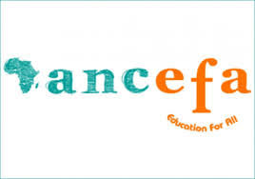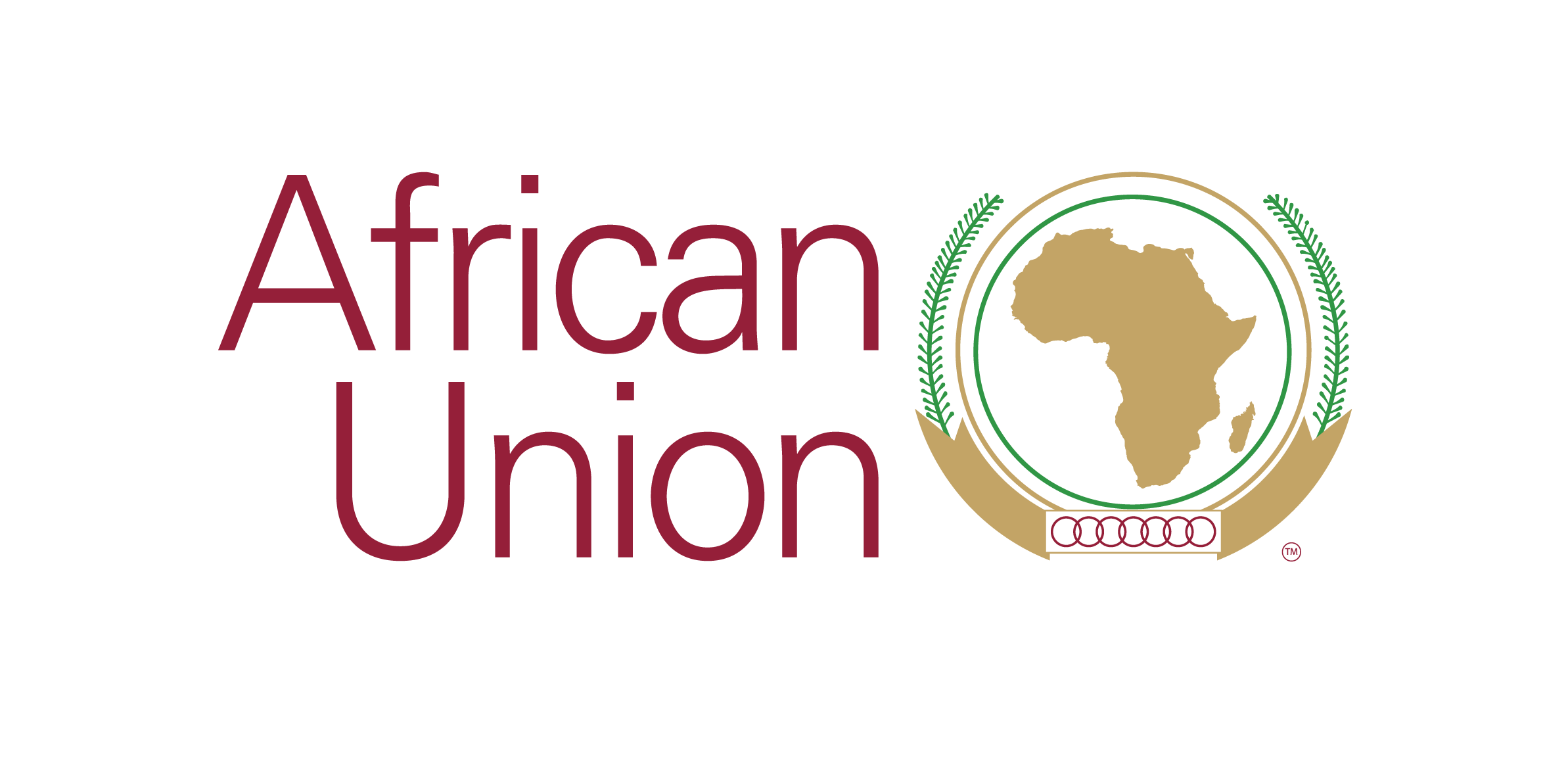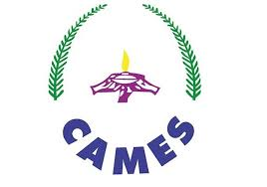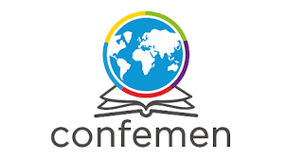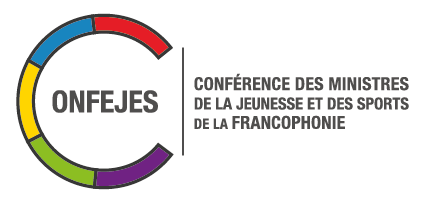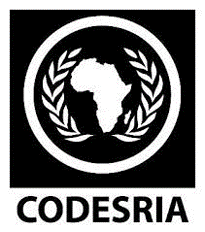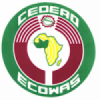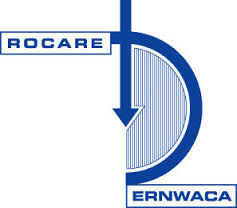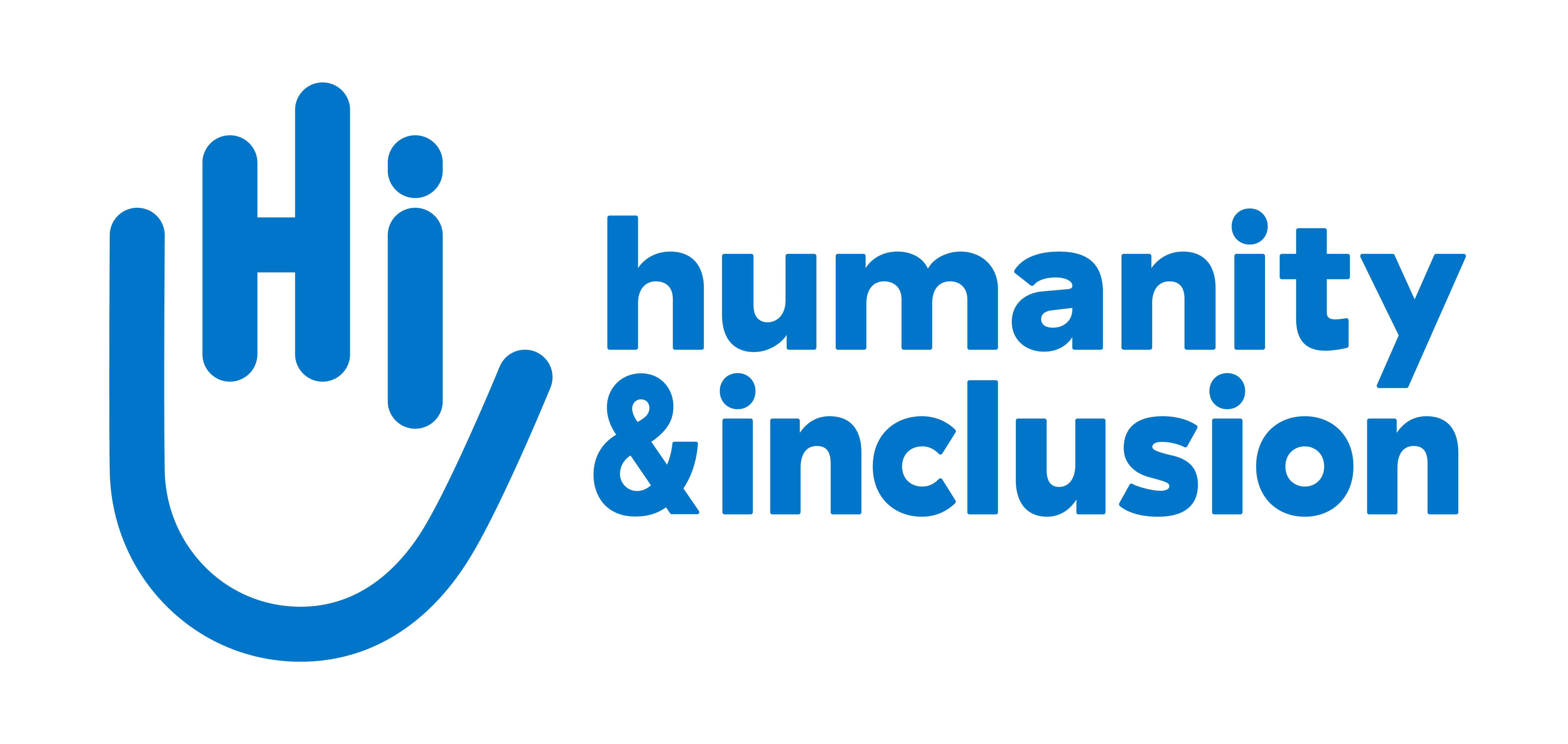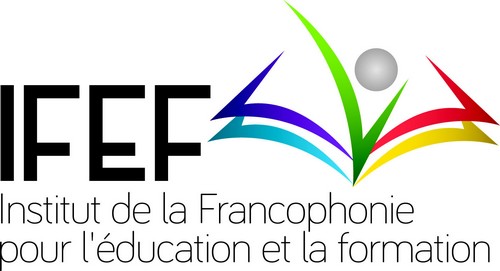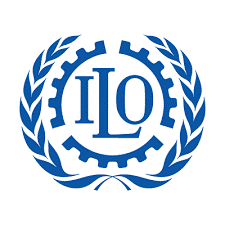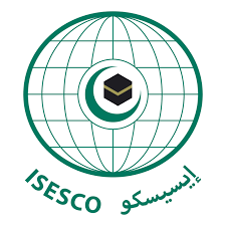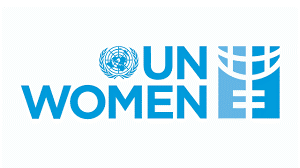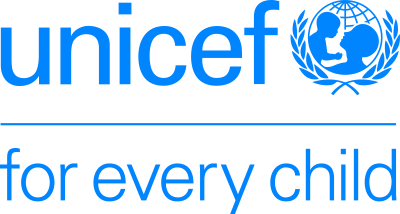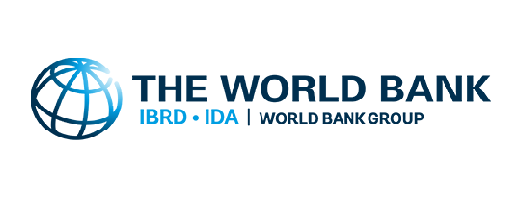Member organizations
The RCG4-WCA endeavors to bring together all UN and non-UN agencies and organizations (including CSOs, higher education networks, research community, teachers’ unions or representations, etc.) working on education development in West and Central Africa to coordinate and harmonize strategies and efforts.
Membership is based on the following eligibility criteria: an organization working on education in WCA that is regionally or globally based and has representation in one or more countries of the region. Membership in the RCG4-WCA is by invitation or request. Eligible organizations wishing to join are expected to make an official request to the Secretariat of the RCG4-WCA based at the UNESCO Regional Office in Dakar, which will consult the member organizations of the group to obtain their approval or non-objection. Membership is institutional and not individual in order to guarantee the continuity of participation and information exchange in the course of time.
Established in 2000, ANCEFA exists to champion the cause of quality inclusive Education for all in Africa and contributes to the global education agenda debates and goal-setting.
With a membership of 37 national education coalitions, ANCEFA works with and through the Dakar-based Regional Secretariat, 3 Programme Offices in Lome, Lusaka and Nairobi, and National Education Coalitions to deliver on its advocacy and campaign work to contribute to the realisation of the right to Education.
ANCEFA is a member of the Global Education Movement, the Global Campaign for Education and sits in various regional and global Education platforms. ANCEFA is in a formal working relationship with the Commission of the African Union as a critical partner in promoting Education Agenda in Africa including the delivery of the CESA 16-25 and AU’s Agenda 2063.
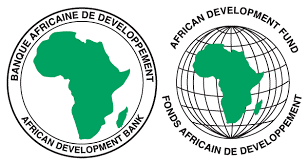 The overarching objective of the African Development Bank (AfDB) Group is to spur sustainable economic development and social progress in its regional member countries, thus contributing to poverty reduction. The Bank Group achieves this objective by mobilizing and allocating resources for investment; and providing policy advice and technical assistance to support development efforts. The AfDB supports the achievement of the Sustainable Development Goals (SDGs), including SDG4: “ensure inclusive and equitable quality education and promote lifelong learning opportunities for all.”
The overarching objective of the African Development Bank (AfDB) Group is to spur sustainable economic development and social progress in its regional member countries, thus contributing to poverty reduction. The Bank Group achieves this objective by mobilizing and allocating resources for investment; and providing policy advice and technical assistance to support development efforts. The AfDB supports the achievement of the Sustainable Development Goals (SDGs), including SDG4: “ensure inclusive and equitable quality education and promote lifelong learning opportunities for all.”
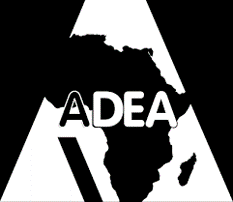 Established in 1988, the Association for the Development of Education in Africa (ADEA) is the voice of education in Africa and a key network of Education Ministries. It plays a significant role in the education space as a convener, knowledge creator and forum for policy dialogue, working through its Inter-Country Quality Nodes (ICQNs) and the Task Force on Education Management and Policy Support. Hosted by the African Development Bank (AfDB) in Abidjan in Côte d’Ivoire, ADEA contributes to the empowerment of African countries to develop quality education and training systems that respond to the countries' emergent needs and drive social and economic transformation sustainably.
Established in 1988, the Association for the Development of Education in Africa (ADEA) is the voice of education in Africa and a key network of Education Ministries. It plays a significant role in the education space as a convener, knowledge creator and forum for policy dialogue, working through its Inter-Country Quality Nodes (ICQNs) and the Task Force on Education Management and Policy Support. Hosted by the African Development Bank (AfDB) in Abidjan in Côte d’Ivoire, ADEA contributes to the empowerment of African countries to develop quality education and training systems that respond to the countries' emergent needs and drive social and economic transformation sustainably.
Created in 1968, the African and Malagasy Council for Higher Education (CAMES) is a coordinating body for higher education and research policies and systems in sub-Saharan French-speaking Africa. It also acts as a regional quality assurance and accreditation agency. In order to manage the problems of higher education and scientific research and innovation in its 19 member countries, CAMES has established the following objectives:
- Promote and foster understanding and solidarity between Member States;
- Establish permanent cultural and scientific cooperation between Member States;
- Collect and disseminate all academic or research documents: theses, statistics, information on exams, yearbooks, yearbooks, ranking lists, information on job offers and requests from all sources;
- Prepare draft conventions between the States concerned in the fields of Higher Education and Research and contribute to the implementation of these conventions;
design and promote policy dialogue with a view to coordinating higher education and research systems in order to harmonise programmes and recruitment levels in the different higher education and research institutions, foster cooperation between the different institutions, as well as exchanges of information.
Founded in 1960, the Conference of the Ministers of Education of French speaking countries (CONFEMEN) is a structure that brings together 44 States and governments of the Francophonie. One of its mains missions is to strengthen and promote policy dialogue in the field of education and training at both the international and the country level.
In addition to the reflections conducted during ministerial sessions and thematic meetings, which result in rich and varied publications, CONFEMEN accompanies member states in improving the quality of their educational systems through two projects: Programme d’analyse des systèmes éducatifs de la CONFEMEN (PASEC) and Observatoire de la qualité de l’Éducation (OQE).
Created in 1969, the Conférence des ministres de la jeunesse et des sports de la Francophonie (CONFEJES) [Conference of Youth and Sports Ministers of the Francophonie] is an intergovernmental institution that endeavors to promote youth, sports and leisure activities within the francophone world.
Its mission is to mobilize countries, resources and efforts in the perspective of increasing concerted action in order to promote the participation and the inclusion of youth in society.
The principle objectives of CONFEJES are to:
- Advise and support member countries in pooling expertise and drawing on their capacities for reflection and creativity;
- Train trainers according to country needs in the areas of youth, sports and leisure activities;
- Encourage socioeconomic inclusion initiatives proposed by youth by participating in the financing of youth entrepreneurial projects;
- Encourage youth to serve their communities;
- Contribute to the development and training of elite athletes in Africa;
- Encourage sports events and competitions and youth gatherings that promote exchange, and stimulate and enhance youth participation and contributions to society.
Following the institutional reform of the Charte de la Francophonie adopted by the Ministerial Conference of the Francophonie, on November 23, 2005 in Antananarivo (Madagascar), CONFEJES was established as an institution of the Francophonie.
Since the 32nd Ministerial Conference in March 2009 in Bujumbura (Burundi), CONFEJES has 43 state and government members.
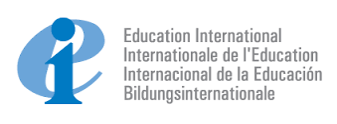 Education International, the world’s largest Global Union Federation, represents 32 million professional educators worldwide. EI advocates for quality education for all and for highly qualified and motivated teachers and other education professionals to help build a better future for everybody. The core duty of EI is to raise the professional standards by improving the status of teachers, pursuing the rights and equality agenda, building and strengthening education unions in all countries.
Education International, the world’s largest Global Union Federation, represents 32 million professional educators worldwide. EI advocates for quality education for all and for highly qualified and motivated teachers and other education professionals to help build a better future for everybody. The core duty of EI is to raise the professional standards by improving the status of teachers, pursuing the rights and equality agenda, building and strengthening education unions in all countries.
EI operates through its regional offices in the 5 continents. The EI Africa Region (EIRAF), based at Accra, Ghana. covers 52 countries with 114 Affiliates in Africa and the Middle East. EIRAF has contributed to the implementation of the MDGs and is contributing now to the implementation of the SDGs and the CESA 16-25.
The Educational Research Network for West and Central Africa (ERNWACA/ROCARE) was established in 1989 in Freetown, Sierra Leone. Currently, ERNWACA manages a wide range of programs and projects in its seventeen member countries.
Conceived at its inception as an informal forum whose key mission was to bring together West and Central African researchers in Education, ERNWACA has progressively become a network bringing together education researchers and practitioners. ERNWACA’s contribution to the construction of a knowledge base on educational research and to its utilization for the improvement of educational practice and evidence-based policies in West and Central Africa has been outstanding. It is now generally acknowledged that ERNWACA has emerged as one of West and Central Africa’s pre-eminent networks for educational research. Undoubtedly, since its founding in 1989, ERNWACA’s collaboration with the Ministries of Education in the region, the donor community, education practitioners and experts and local universities, has fostered the production of knowledge and the use of research data for the betterment of education in Africa.
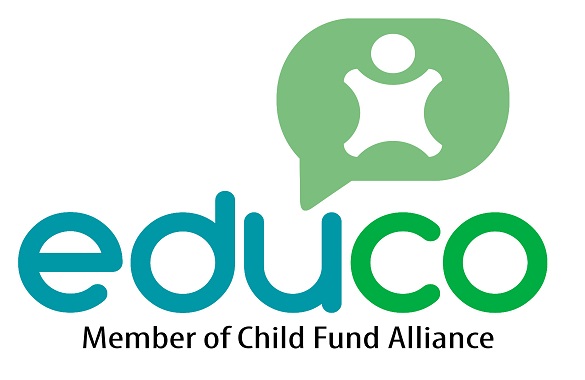 Educo is a global cooperation, development and humanitarian action NGO that has worked for more than 25 years in favor of children and for the defense of their rights, especially the right to receive an equitable and quality education.
Educo is a global cooperation, development and humanitarian action NGO that has worked for more than 25 years in favor of children and for the defense of their rights, especially the right to receive an equitable and quality education.
Educo works on social projects in Spain and in countries in Africa, America and Asia involving more than 550,000 children and 150,000 adults to promote more just and equitable societies that guarantee their rights and well-being.
Educo envisions a world where all children enjoy their full rights and live in dignity.
Educo is part of the ChildFund Alliance, one of the leading NGO coalitions focused on child protection, present on all five continents.
 The Forum for African Women Educationalists (FAWE) is a pan-African non-governmental organization founded in 1992 by five women ministers of education to promote girls’ and women’s education in sub-Saharan Africa in line with Education for All. The organization’s members include female ministers of education, university vice-chancellors, education policy-makers, researchers, gender specialists and human rights activists. FAWE’s target beneficiaries and constituency are primarily girls and women.
The Forum for African Women Educationalists (FAWE) is a pan-African non-governmental organization founded in 1992 by five women ministers of education to promote girls’ and women’s education in sub-Saharan Africa in line with Education for All. The organization’s members include female ministers of education, university vice-chancellors, education policy-makers, researchers, gender specialists and human rights activists. FAWE’s target beneficiaries and constituency are primarily girls and women.
FAWE operates through 34 National Chapters in sub-Saharan Africa and its vision, mission and goals are all resolute on the well-being of girls’ education. In order to accomplish its mission of “promoting gender equity and equality in education in Africa” FAWE employs a holistic four-pronged approach: advocacy and policy engagement; community advocacy; demonstrative interventions and replication, scaling up and mainstreaming.
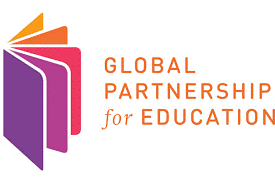 Established in 2002, the Global Partnership for Education (GPE) is a multi-stakeholder partnership and fund. GPE mobilizes investments, both external and domestic, to help governments build stronger education systems, based on data and evidence. Its partners include close to 70 of the world's poorest developing countries, over 30 bilateral, regional, and multilateral agencies; development banks; the private sector; civil society groups; and teachers’ organizations. GPE gives partner countries the tools and support they need to strengthen planning, policy dialogue and monitoring, and help them achieve their education goals
Established in 2002, the Global Partnership for Education (GPE) is a multi-stakeholder partnership and fund. GPE mobilizes investments, both external and domestic, to help governments build stronger education systems, based on data and evidence. Its partners include close to 70 of the world's poorest developing countries, over 30 bilateral, regional, and multilateral agencies; development banks; the private sector; civil society groups; and teachers’ organizations. GPE gives partner countries the tools and support they need to strengthen planning, policy dialogue and monitoring, and help them achieve their education goals
GPE works with partners in local education groups, promotes aligning external support to a country’s priorities and systems, provides grants to prepare and implement sector plans and programs, and gives technical guidance to monitor progress. This support helps countries develop and implement good quality education plans, which are fundamental to building stronger and equitable education systems.
GPE 2020, the partnership’s strategic plan for 2016-2020, outlines what it must do to support stronger education systems, and achieve the Sustainable Development Goal 4 of inclusive and quality education for all. GPE 2020 is monitored through a results framework.
Co-recipient of the 1997 Nobel Peace Prize, Humanity & Inclusion (HI) (the new name of Handicap International) is a 35-year-old independent and impartial organization working in situations of poverty and exclusion, conflict and disaster.
HI works alongside people with disabilities and vulnerable populations, taking action and bearing witness in order to respond to their essential needs, improve their living conditions and promote respect for their dignity and fundamental rights.
With local partners, HI runs programs in health, education and rehabilitation and social and economic integration. HI advocates for the universal recognition of the rights of people with disabilities through national planning and advocacy.
Based in Dakar, Senegal, the Institute of the Francophonie for Education and Technical and vocational education and Training (IFEF) is a subsidiary body of the International Organization of La Francophonie (OIF). Its mission is to aid state and government members of the Francophonie and its partners with technical expertise on the development, implementation, monitoring and evaluation of education and TVET policies. The objectives are to achieve inclusive, equitable and quality education so as to promote lifelong learning opportunities for all. The IFEF was established by the heads of states and governments at the 15th Summit Meeting held in Dakar in 2014.
Three of the OIF’s education and TVET programs are managed by IFEF:
- P9 – Education Innovation and Reform Program for multilingual education (ELAN-PAIRE)
- P10 – Large-scale quality teaching and learning of and in French - Teacher training (IFADEM)
- P11 – Promote occupational integration through a better Technical and Vocational Education and Training offer
The Islamic Educational, Scientific and Cultural Organization -ISESCO- was founded by the Organization of Islamic Cooperation (OIC) following the resolution adopted by the Ninth Islamic Conference of Foreign Ministers in May 1979. On May 3rd 1982, ISESCO held its founding conference in the Kingdom of Morocco, and elected its first Director General.
Actually with 54 member states, ISESCO is one of the largest international Islamic organizations which is specialized in the fields of education, science and culture. Its headquarters are in Rabat, Morocco. The Director General is Dr Salim Dr. AlMalik, also Secretary General of the Federation of the Universities of the Islamic World (FUIW). The working languages of ISESCO are Arabic, English and French.
ISESCO is an international organization with as core mandate to strengthen and promote cooperation among the Member States in the fields of education, science culture and communication; consolidate understanding among peoples inside and outside Member State; contribute to world peace and security through various means; publicize the true image of Islam and Islamic culture; promote dialogue among civilizations, cultures and religions; encourage cultural interaction and foster cultural diversity in the Member States, while preserving cultural identity and intellectual integrity.
ISESCO includes 3 organizations:
- The General Conference is held once every three years.
- The Executive Council, consists of representative for each Member State, involved in education, science, culture or communication.
- The General Directorate is headed by a Director The General Conference elects the Director for a three-year term.
 Founded in 1937, Plan International is a development and humanitarian organization that advances children’s rights and equality for girls. Plan International strives for a just world, working together with children, young people, and its supporters and partners.
Founded in 1937, Plan International is a development and humanitarian organization that advances children’s rights and equality for girls. Plan International strives for a just world, working together with children, young people, and its supporters and partners.
Plan International engages people and partners to:
- Empower children, young people and communities to tackle the root causes of discrimination against girls, exclusion and vulnerability;
- Drive change in practice and policy at local, national and global levels;
- Work with children and communities to prepare for and respond to crisis and to overcome adversity; and
- Support the safe and successful progression of children from birth to adulthood.
In 2018, Plan International reached 18.1 million girls and 16.1 million boys in 76 countries.
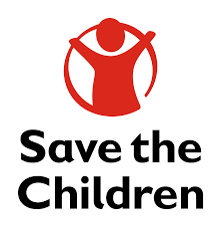 Save the Children is an international non-governmental organization working in 120 countries and reaching more than 62 million children. Our mission is to inspire breakthroughs in the way the world treats children, and to achieve immediate and lasting change in their lives. The organization is committed to contributing to the sustainable development goals, ensuring that all children survive, learn and are protected by 2030.
Save the Children is an international non-governmental organization working in 120 countries and reaching more than 62 million children. Our mission is to inspire breakthroughs in the way the world treats children, and to achieve immediate and lasting change in their lives. The organization is committed to contributing to the sustainable development goals, ensuring that all children survive, learn and are protected by 2030.
In West and Central Africa, the organization works in 9 countries on education, health, nutrition and protection programs and humanitarian response, as well as advocacy and campaigns. We work in Early Childhood Care and Development, Basic Education and Youth Empowerment to ensure that all girls, boys and adolescents, particularly the most deprived and marginalized, learn from a quality education in a health-promoting, safe and protective learning environment.
Sightsavers works in more than 30 countries worldwide, focusing on Africa and Asia.
Sightsavers partners with local, regional, national and international organisations, ministries, governments and non-governmental organisations. With their help, Sightsavers distributes treatments to prevent disease, carrys out operations and eye examinations, advocates for disability rights and strengthens education and health systems to create sustainable development projects.
Sightsavers vision is of a world where avoidable blindness has been eliminated, and people with visual impairments and other disabilities have the same opportunities as everyone else. Sightsavers works with local and national partners in more than 30 programme countries to promote inclusive, quality education, giving all children the chance to go to school.
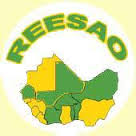 The Network for Higher Education Excellence in West Africa (REESAO) was created in 2005 in Lomé with the objective of promoting a new policy of cooperation between universities and prioritizing university modernization so as to better support students’ mobility and professional preparation.
The Network for Higher Education Excellence in West Africa (REESAO) was created in 2005 in Lomé with the objective of promoting a new policy of cooperation between universities and prioritizing university modernization so as to better support students’ mobility and professional preparation.
REESAO endeavors to harmonize curricula and the nomenclature of diplomas to benefit student mobility and inter-university degree recognition; support online publication of curricula and the associated course numbers and credits; encourage the promotion of distance learning and the adoption of essential tools for sharing content through videoconferencing, and promote cooperation in education, science and culture among members.
Office of the United Nations High Commissioner for Refugees (UNHCR), the UN Refugee Agency, leads international action to protect people forced to flee their homes because of conflict and persecution. It delivers life-saving assistance, helps safeguard fundamental human rights, including the right to education, and develops solutions that ensure people have a safe place to call home where they can build a better future. UNHCR also works to ensure that stateless people are granted a nationality.
In times of displacement, education is crucial. UNHCR partners with governments, sister agencies, humanitarian and development actors, and civil society to increase opportunities for refugee and host community learners to access sustainable, accountable, lifelong education programming that is supervised, certified, and inclusive, in line with SDG4, The New York Declaration and the Comprehensive Refugee Response Framework.
UNICEF works in 190 countries and territories to protect the rights of every child and has spent 70 years working to improve the lives of children and their families. UNICEF believes that quality education is a right for all children, whether in the developing world or amidst conflict and crisis.
UNICEF's new global education strategy focuses on advocating for a learning revolution to improve learning outcomes while ensuring equity and inclusion for every child, of pre-primary, primary, and lower secondary age. It will pursue learning outcomes, equity and inclusion through a mix of key programme approaches, namely, data and evidence generation, innovation, systems' strengthening, community engagement, advocacy and communication and service delivery.
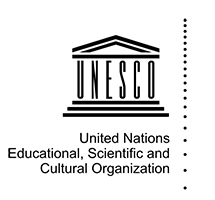 The United Nations Educational, Scientific and Cultural Organization’s (UNESCO) mission is to contribute to the building of peace, the eradication of poverty, sustainable development and intercultural dialogue through its fields of expertise: education, science, culture, communication and information.
The United Nations Educational, Scientific and Cultural Organization’s (UNESCO) mission is to contribute to the building of peace, the eradication of poverty, sustainable development and intercultural dialogue through its fields of expertise: education, science, culture, communication and information.
As the specialized UN agency for education, UNESCO was appointed by the international education community in 2015 as global sector lead to coordinate the implementation of the SDG4-Education 2030 agenda.
The organization covers all educational levels and learning modalities, from early childhood to higher education, through technical and vocational training, literacy and non-formal education of youth and adults.
IIEP-Pôle de Dakar
UNESCO Institute for Statistics (UIS)
With 189 member countries, staff from more 170 countries, and offices in over 130 locations, the World Bank Group is a unique global partnership of five institutions working for sustainable solutions that reduce poverty and build shared prosperity in developing countries.
The World Bank is a vital source of financial and technical assistance to developing countries around the world, including in the area of education. The World Bank engages in the following education sector activities: Adult, Basic and Continuing Education; Early Childhood Education; Primary, Secondary and Tertiary Education; Public Administration Education; and Workforce Development/Skills.

